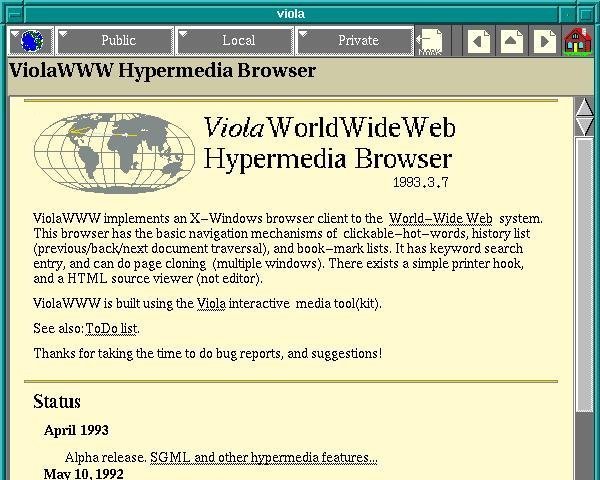Ars Technica has up a history article on the early web browsers, a rare glimpse into the largely-forgotten software that beat NCSA Mosaic to the punch but didn’t quite make it into pop culture consciousness (seen above is ViolaWWW, notable for early stabs at browsing history, bookmarks, styles, and even embedded scripting — probably also the first web browser I remember using on my Slackware copy of X Windows circa 1994! </old>).
For all of the developments in web technology since 1991, it’s remarkable to see how many UI features and browsing concepts emerged almost immediately and are still with us today.

